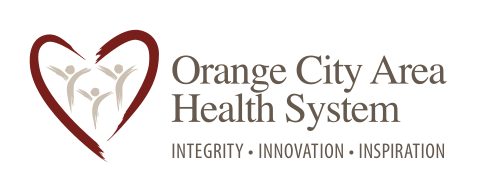– by Amy Van Gorp, Pharm.D., BCPS • Clinical Pharmacist on our Family Medicine Team
(Originally published in the Capital-Democrat)
We hear it all the time: I hate taking medication! I don’t blame you. I don’t like taking medication either, and I’m a pharmacist. My poor husband suffers every time he has a cold as I tell him “you’ll get over it” instead of offering him medication. But, if taken correctly, medications can do amazing things – stop life threatening infections, heal wounds, prevent you from having a heart attack, and help you live longer!
Medications are incredible, but there is always a cost. Like all of healthcare, the price for medications seems to be going up and not down. If you’re going to spend the money, you might as well get the maximum benefit from your medicine.
Here are some of my best tips on how to get the most from your medications:
- Make sure you have an up-to-date medication list and try to keep it with you at all times. This is so important. If your healthcare provider knows what you are actually taking, it helps them take better care of you! Don’t assume the list your provider has is correct. Ask your provider for a printout of your medications and compare it to your actual bottles at home. Let your provider know if anything needs to be fixed or updated. Don’t forget to include any over-the-counter or herbal products! These have side effects and drug interactions just like any other medicine.
- Take your medication as directed. It may be tempting to only take your pills every other day or a couple times per week to save costs, but medications need to be taken as directed to receive the full benefit. Many medications need to reach a constant level in your body in order to do their job; skipping doses impairs this process. If you have trouble remembering if you took your pills, try using a weekly pillbox to organize your medications. This simple tool takes out some of the guesswork! You can get pillboxes at many stores locally or online.
- If a medication becomes too costly, ask your pharmacist about cheaper alternatives. There are often cheaper options – you just have to ask! Have your pharmacist write down more cost-effective options and bring these to your healthcare provider to discuss.
- Ask your provider or pharmacist before you start splitting pills. Some medications, especially long-acting forms, should not be split. Splitting these pills could cause you to get a large dose of the medication all at once and then nothing the rest of the day. This can result in serious side effects and leave your medical condition uncontrolled.
- Consider pharmacogenetic testing. This is a lab test done to measure how you uniquely respond to certain medications. Science has long known that different people react differently to the same medication, but we are just starting to have the tools to figure out why. The test will show which medications your body processes well, which medications it metabolizes too quickly (making the medication ineffective), and which medications tend to build up and cause problems. Getting tested ensures that your doctor will choose medications that work for you and don’t cause unnecessary side effects – the right drug at the right dose. The potential cost-savings and avoidance of adverse effects makes pharmacogenetic testing very appealing to both patients and providers. Many places are offering this testing which may or may not be covered by your insurance. Be sure you are using a reputable lab if you choose to do this testing.
- Be careful about what you read on the internet. You can search any medication online and will get some fantastic stories about side effects and conspiracy theories. If you think you might be experiencing a side effect, call your healthcare provider. They can research reputable databases for realistic side effect rates and offer you options on what to do next. If you are getting your medical knowledge from a website with ads lining the sides of the screen, you should probably look elsewhere.
These tips might not make taking medicine enjoyable, but they will help you get the most benefit and value from your medication regimen. Always keep in mind that you have healthcare providers who are willing and able to help you navigate this confusing area of healthcare.
